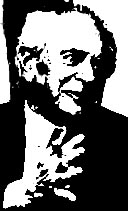Karl Popper |

writings on karl popper |
This is the first of a series of articles published in the Melbourne 'Age Monthly Review'. It provides an overview of Popper's life and work to indjcate the major problems and issues which he addressed. It also shows how his work has been widely misrepresented due to the prevalence of 'Henry Root' scholarship. This is an early paper, written for the student newspaper at the University of Sydney. It challenges radical students to see that Popper had a lot to offer if they were really serious about improving the world rather than just talking about it. This paper shows how Popper's ideas provide a rational but radical alternative to the essentially conservative positions and attitudes that are promoted by traditional positivism, Kuhn, Lakatos and Feyerabend. Popper's theory of objective knowledge has the potential to advance the discussion of many issues that has stalled due to the traditional subjectivist approach. This is illustrated with a number of examples ranging from philosophical analysis to the discussion of morals and the impact of imaginative literature. This article introduces Popper's theory of metaphysical research programs. This theory signaled his final break with positivism and it provides a unifying principle to integrate his work on many other topics. Obsession with definitions and the meaning of words has muddied the stream of debate in many disciplines. This article shows how the intellectual error of essentialism has undermined the theory of democracy and the pursuit of freedom. This paper shows how Popper's theory of objective knowledge supports previous work by Wellek and Warren in the theory of literature. This is a draft, written with the benefit of Bartley's ideas, to show how both the problem of induction and Hume's is/ought problem share a common structure and are both resolved in the context of "critical preference" rather than the traditional context of "justified belief". A review of Hacohen's book on Popper, written for the Mises Newsleter. A review of Hacohen's book on Popper written for the Humane Studies Review. Rationality and the Sociology of Knowledge Radnitzky and Bartley edited this important collection of papers on a number of topics, demonstrating the fertility of the evolutionary approach that dominated the latter part of Popper's career. This paper is based on the talk delivered from notes at the Centenary Conference in Vienna. The aim of the paper is to point to the synergy that can be generated from a combination of Popper's metaphysics and the "Austrian" approach to economics and the human sciences. |

'I greatly admired my cousin, Eric Schiff, for his being one year older than I, for his tidiness and, especially for his good looks, gifts which I always regarded as important and unattainable". |
on karl popper |
Popper had quite a lot to say about education, mostly in scattered comments and notes. This is a collection of his statements on various aspects of that topic |
This is a commentary on four papers prepared for the Popper session at the 1989 meeting of the Mont Pelerin Society in Christchurch, New Zealand. |
A Master's thesis exploring the Popperian response to the uncertainty of experimental testing and the underdetermination of theories. |
Ian Jarvie has recently published a potentially revolutionary account of the "social" or "conventional" turn in Popper's work. This review argues that Jarvie's work helps to elucidate the unity of Popper's thought in natural science, the social sciences, politics and moral discourse. |